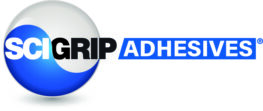by Linwood Herndon, Product Manager
Every manufacturer producing assemblies is in a never-ending search for efficiency and continuous improvement. There are many paths to defining and achieving efficiency, among them:
- Speed – reducing the time it takes to put an assembly together
- Materials reduction – using lighter weight materials for easier handling
- Reducing process variation- including elimination of tools and process steps
- Increasing flexibility – expanding “production ready” places and times
However, most manufacturers don’t know how methyl methacrylate adhesives (MMAs) can contribute to improvements in each of these areas.
Looking to improve assembly speed? MMAs are quick to apply – all you have to do is lay down the bead of adhesive and bring the parts together. For small assemblies, a cartridge system can work best whereas for larger assemblies, mixing and dispensing equipment can be used. No time spent fiddling with or finding hardware or welding equipment.
Can MMAs reduce the material used in assemblies? Yes. A lighter assembly is one using less material and one that’s easier to handle. Because MMAs are both strong and flexible (an advantage over epoxies and polyurethanes), they are ideal for bonding together lightweight materials, such as composites and plastics. In addition, they can meaningfully reduce the weight of assemblies simply by replacing hardware and heavy welds.
Is process variation affected by the choices of joining methods in assembly? Often products assembled using either fasteners or welding require finishing steps, to sand down, smooth, or cover the joining area. MMAs offer an advantage compared to these other joining methods – in most assemblies using MMAs, no finishing work is required. Builders and manufacturers can remove finishing requirements, and the associated process steps and tools required.
How do MMAs compare to other adhesives in terms of the application process – are they flexible? Many adhesives require application or curing to be within temperature ranges that are narrower than the range typically seen in assembly facilities, requiring controlled environments. MMAs cure at room temperature, making them a preferred choice for most manufacturing environments.
Want to learn more? Discover how SCIGRIP can optimize your production – check out our Case Studies – SCIGRIP Structural Adhesives









